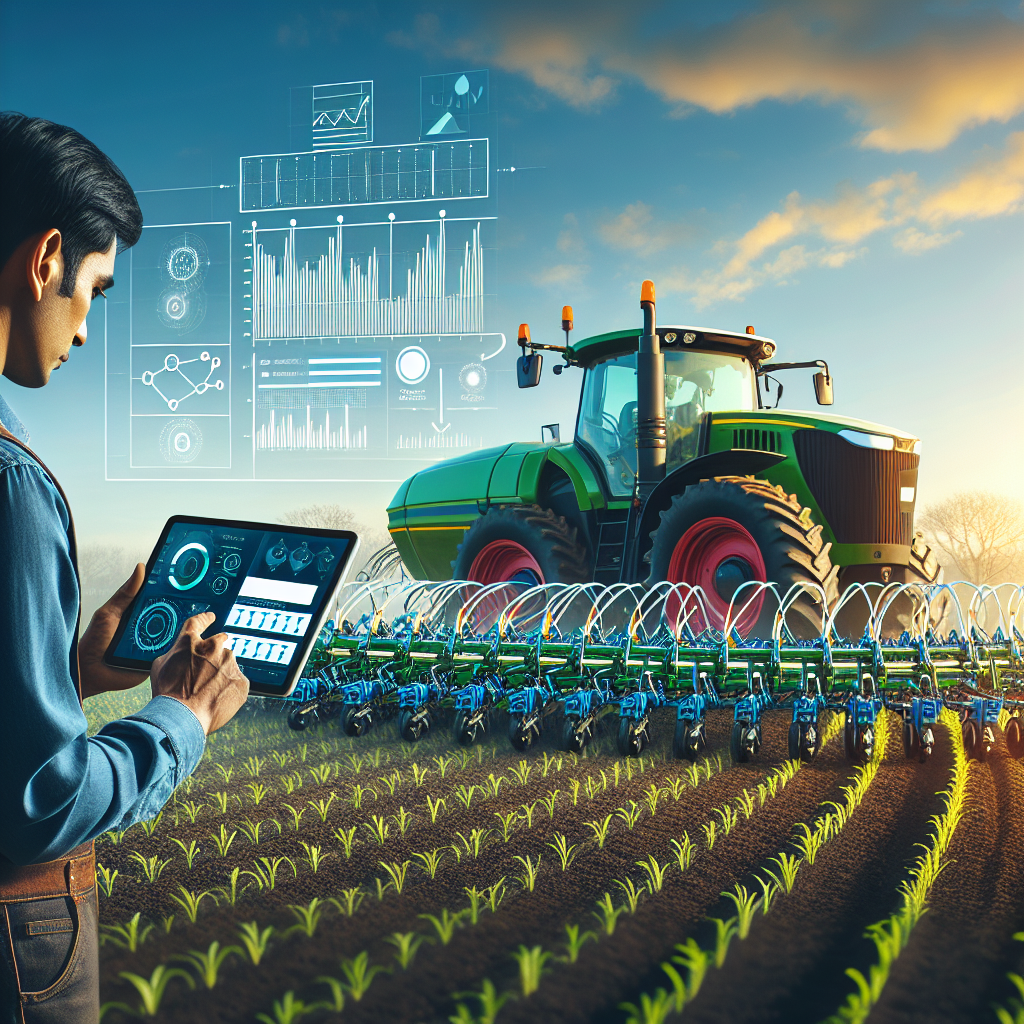Precision Agriculture: How AI is Transforming Farming Practices
Farming has come a long way from the traditional methods of planting, harvesting, and managing crops. With the advent of technology, farmers have been able to enhance their operations and increase productivity through the use of precision agriculture. Precision agriculture, also known as precision farming or smart farming, is a farming management concept that uses technology to optimize crop yields and reduce waste.
One of the key technologies driving precision agriculture is artificial intelligence (AI). AI refers to the simulation of human intelligence in machines that are programmed to think and learn like humans. In the context of agriculture, AI is being used to analyze data, make predictions, and automate various processes to improve farming practices.
How AI is Transforming Farming Practices
1. Data Analysis: One of the key benefits of AI in precision agriculture is its ability to analyze vast amounts of data in real-time. AI algorithms can process data from various sources such as sensors, drones, satellites, and weather forecasts to provide insights on soil health, crop growth, pest infestations, and more. This data analysis helps farmers make informed decisions on how to optimize their farming practices for better yields.
2. Predictive Analytics: AI can also be used for predictive analytics in agriculture. By analyzing historical data and current trends, AI algorithms can predict future outcomes such as crop yields, pest outbreaks, and weather patterns. This allows farmers to plan ahead and take proactive measures to mitigate risks and maximize productivity.
3. Automation: AI-powered machines and robots are increasingly being used in agriculture to automate tasks such as planting, weeding, and harvesting. These machines are equipped with sensors and cameras that can detect and respond to changes in the environment, ensuring that crops are managed efficiently and with minimal human intervention.
4. Precision Spraying: AI technology is also being used to optimize the application of pesticides and fertilizers in agriculture. By using sensors and AI algorithms, farmers can precisely target areas that require treatment, reducing the amount of chemicals used and minimizing environmental impact.
5. Crop Monitoring: AI-powered drones and satellites are revolutionizing crop monitoring in agriculture. These devices can capture high-resolution images of fields and analyze them to provide insights on crop health, growth, and yield potential. This information helps farmers make timely decisions on irrigation, fertilization, and pest control to maximize crop productivity.
6. Disease Detection: AI is also being used to detect diseases in crops early on. By analyzing images of plants taken by drones or cameras, AI algorithms can identify signs of disease, nutrient deficiencies, or pest infestations. This allows farmers to take immediate action to prevent the spread of diseases and protect their crops.
FAQs
Q: Is AI replacing human labor in agriculture?
A: While AI technology is automating certain tasks in agriculture, such as planting and harvesting, it is not replacing human labor entirely. Farmers still play a crucial role in decision-making, managing operations, and overseeing the overall farming process.
Q: How accessible is AI technology for small-scale farmers?
A: AI technology in agriculture is becoming more accessible to small-scale farmers through affordable solutions and partnerships with agribusiness companies. Many tech startups are also developing AI tools specifically for small-scale farmers to help them improve their farming practices and increase productivity.
Q: What are the potential benefits of AI in agriculture?
A: The potential benefits of AI in agriculture include increased crop yields, reduced waste, improved sustainability, and enhanced efficiency. By using AI technology, farmers can optimize their farming practices, make data-driven decisions, and adapt to changing environmental conditions more effectively.
Q: Are there any challenges to adopting AI in agriculture?
A: Some of the challenges to adopting AI in agriculture include the high cost of technology, the need for specialized skills to operate AI systems, and concerns about data privacy and security. Additionally, there may be resistance to change from farmers who are accustomed to traditional farming methods.
In conclusion, AI is transforming farming practices through precision agriculture by providing farmers with valuable insights, predictive analytics, automation, and improved crop monitoring capabilities. As AI technology continues to evolve, it is expected to revolutionize the way we grow food and manage agricultural resources, ultimately leading to more sustainable and efficient farming practices.

